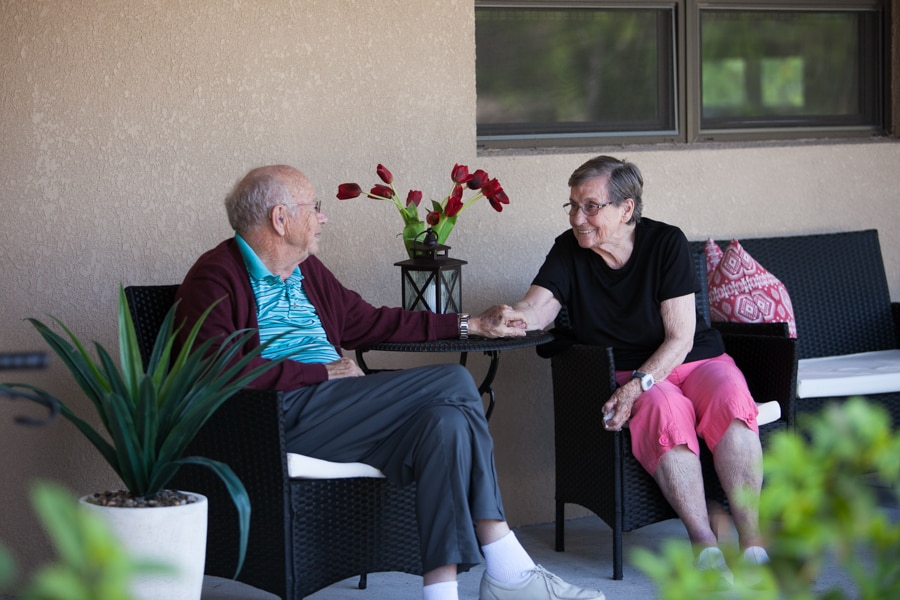It is estimated that 60,000 Americans are diagnosed with Parkinson’s disease each year and one million Americans are currently living with this neurodegenerative disease. Commonly known for its movement or motor-related symptoms, people with Parkinson’s disease are often more impacted by non-motor symptoms like apathy, depression, sleep behavior disorders, loss of sense of smell and cognitive impairment. Although everyone is affected differently the following tips can help anyone with this disease live life more fully.
1. Exercise Regularly
Moving and stretching your body will boost anyone’s health but when you have Parkinson’s it can help give you:
- More flexibility
- Better balance
- Less anxiety and depression
- Improved coordination
- Added muscle strength
Always speak with your doctor before starting any type of physical activity. You may want to ask what type of exercise would be the best fit for you and may want to try:
- Walking
- Swimming or water aerobics
- Gardening
- Stretching
- Dancing
- Tai Chi
2. Be Fall Savvy
Balance problems make falling a valid concern with Parkinson’s so be very careful when moving around and be mindful of the following:
- Don’t move too quickly
- Plant your heel on the ground first
- Stand up straight and look ahead of you; not at the ground
- Try not to carry anything
- Don’t walk backward
If you follow these steps and still find yourself unsteady on your feet consider using a cane, walker or other assistive device to keep yourself moving safely.
3. Get a Great Night’s Sleep
Parkinson’s can sometimes stand in the way of getting the quality sleep that you need so set yourself up for success by incorporating the following:
- Create a relaxing bedtime routine
- Go to bed and wake up at the same time every day
- Get plenty of natural light during the day and keep your bedroom dark at night
- Stay away from caffeine, alcohol, and exercise for at least 4 hours before bedtime
- Keep your bedroom cool at night
- Make sure your mattress and pillow are comfortable and support you well
- If you nap during the day, keep it to 60 minutes or less and earlier in the day
4. Eat Healthy
When you have Parkinson’s disease it is common to experience bone thinning, dehydration, weight loss, and constipation. You can head off many of these symptoms if you keep close tabs on your nutrition and remember to:
- Eat a variety of whole grains, vegetables, and fruits every day
- Watch how much fat you eat; especially the saturated kind
- Limit sugar, salt, and sodium
- Drink plenty of water, at least 8 glasses a day
- Load up on foods packed with vitamin D, magnesium, vitamin K, and calcium for bone strength
5. Expand your Team
Your doctor is your first line of defense for treating your Parkinson’s symptoms although many other specialists and therapies can help you. Think about expanding your care to include:
- Physical therapy to help you with your movement
- Occupational therapy to make daily activities easier
- Speech therapy to improve your speaking and swallowing
- Music, art, or pet therapy to improve your mood and help you relax
- Acupuncture to help with pain
- Massage to ease your muscle tension
For more creative tips directly from people who live with Parkinson’s disease visit: https://parkinson.org/blog/tips/DIY-Do-It-Yourself-Living-Better-with-Parkinsons






